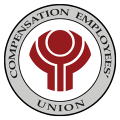Why is the Union in the room?
When WCB meets with staff there is no obligation on the employer’s part to invite a union representative unless the employer intends to discipline the member in the meeting; the meeting could lead to the discipline (eg. an investigatory meeting where allegations of wrongdoing are being raised by the employer); or, the subject of the meeting is to discuss the member’s work performance. Aside from these limited situations, the union has no right to attend employer-initiated meetings where a manager and/or director meets with the staff.
So, if there is no obligation to invite the union, why does a union representative sometimes attend staff meetings?
The union representative is there at the invitation of the employer, to observe the message the employer delivers to the staff and to listen to the discussion that flows from an announcement. Our participation is quite often limited to listening, witnessing, and understanding firsthand what transpires at the meeting, in case there are future discussions with management and/or members.
The union’s attendance does not, in and of itself, indicate that there is agreement with the employer on the topic being presented or the way it is presented by the employer. We may disagree with the merits of an employer initiative, but, if the employer invites us to attend a staff meeting, we always try to send a representative. We want to be able to hear directly what the employer tells the staff and what the members raise as positives and negatives of the employer’s announcement. We also usually ask the employer if we may speak with the members privately at the end of the meeting, on work time, so that we can hear any concerns that may not have been raised in front of management. And then, based on all the information gathered from employer’s statements and members’ feedback, the union can move forward, better informed, to advocate on behalf of the membership in future meetings with the employer on the topic.






